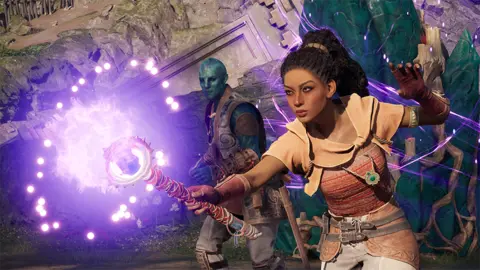The realm of video games has consistently evolved, with one of the most compelling trends of late being the quest for games that respect players’ time. This change appears to be a response to the rising phenomenon of backlogs, a term that describes the extensive list of games players have bought but have yet to finish or even start. In Japan, there’s a specific word for a collection of unread books—tsundoku—and it parallels the gaming community’s struggle to manage a backlog of unfinished titles.
For many avid gamers, particularly those owning consoles or PCs, the accumulation of unplayed or partially completed games can be overwhelming. As gaming enthusiasts seek to catalog their digital collections, some have resorted to online platforms to reconcile their gaming ambitions with the reality of limited available time. Recent data suggests that the sheer volume of games released continues to increase, with blockbuster titles typically demanding even more time due to their extensive content. The result is a disheartening statistic: studies estimate that only about 10% of players will actually finish the games they purchase.
Amid this growing concern, especially as many of the top-reviewed games of the past few years require upwards of 60 hours to fully complete, it begins to appear that the industry may be responding to these challenges. Rhys Elliott, an analyst from Midia Research, highlights that video game lengths have been gradually increasing over time, resulting in players feeling more disengaged due to the enormity of these gaming experiences. For instance, the Assassin’s Creed series, once known for providing relatively concise gameplay experiences of around 25 to 30 hours, has seen installments like Assassin’s Creed Valhalla surpass 60 hours, a spike that reflects a broader trend in gaming.
This push for longer games was, on the surface, a strategy to give players more value for their money. However, as production budgets for games rise alongside development timelines, the return on investment appears increasingly questionable when player completion rates decline in relation to length. Elliott points out that a reduction in game length might actually yield better results for developers; he posits that shortening a lengthy game by even 20% could go unnoticed by players while enhancing overall engagement.
Balancing length and player engagement can be complex, and giving players meaningful choices within games opens an alternative route. For instance, the game Avowed, released by Obsidian—a studio known for titles like The Outer Worlds and Fallout: New Vegas—attempted to alleviate concerns surrounding time investment. Game director Carrie Patel, noted the need for players to enjoy an experience that acknowledges their time constraints. With a projected completion time of approximately 15 hours for a standard playthrough, and around 40 hours if players seek to engage with all the optional content, Avowed aims to provide a fulfilling yet manageable gameplay experience.
Interestingly, the notion that longer games equate to better quality has come under scrutiny within the community. Titles, even ones as widely celebrated as Spider-Man 2, which could be completed in less than 30 hours, have proven successful due to their compelling narratives and gameplay mechanics rather than their extensive length. Critics like Patel suggest that the gaming community is increasingly looking for immersive experiences rather than simply hours of gameplay. They desire value in gameplay—depth, connection, and engagement.
As the industry navigates these dynamics, fundamental questions about game design emerge. Why push games to be longer than necessary? This question lingers considering that many players may only engage with a fraction of what a game has to offer. Creating “exit ramps” within games—options for players who do not want to invest countless hours—may help designers build experiences that cater more holistically to varied player preferences.
In conclusion, the gaming landscape is at a crossroads, where the emphasis seems to be shifting from sheer quantity to the quality of the gaming experience. As developers identify opportunities to engage players without overwhelming them, bespoke narratives and carefully curated content packages could redefine success in the gaming world, ensuring players both enjoy and complete their gaming journeys.



